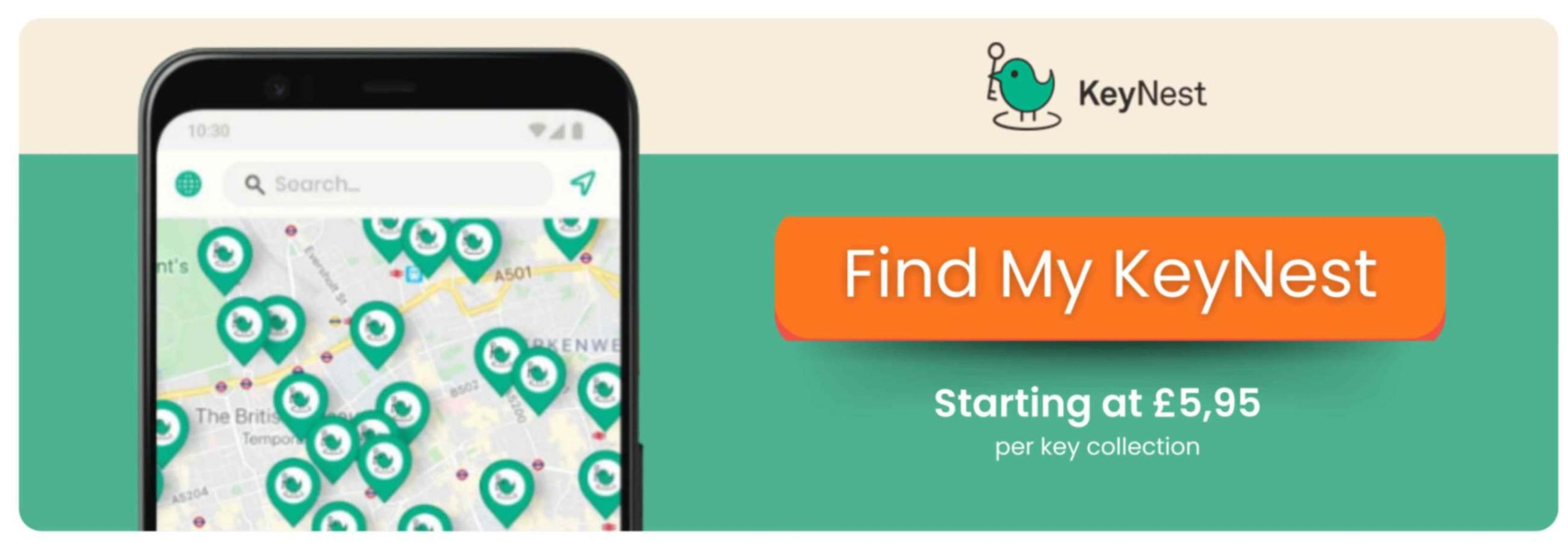Over 1500 key exchange locations nationwide
Airbnb Host & Short-Term Rental Regulations At Newcastle Upon Tyne
Becoming an Airbnb host in Newcastle Upon Tyne can be a lucrative venture, offering tourists a local experience in one of the UK’s most dynamic cities. However, before you open your doors to guests, it’s essential to understand the legal and regulatory landscape that governs short-term rentals. The regulations surrounding Airbnb hosts are ever-evolving, so staying informed is crucial to avoid fines or legal issues.
Newcastle has specific rules that aim to protect both hosts and guests, as well as maintain the quality of life for residents. These regulations cover everything from safety standards to tax obligations and planning permissions. In this guide, we will walk you through the most important regulations every Airbnb host in Newcastle Upon Tyne needs to be aware of.
By understanding these laws, you can confidently offer your space and ensure your hosting experience is smooth and compliant. Whether you're a seasoned host or new to Airbnb, this guide will help you navigate Newcastle’s unique regulatory environment. Let’s dive into the essential rules and regulations that will shape your hosting journey.
1. Planning Permission And Zoning Rental Regulations
In Newcastle Upon Tyne, one of the first things to consider before listing your property on Airbnb is whether you need planning permission. The rules governing short-term lets are tied to zoning and land-use regulations, and it’s important to know if your property falls within specific zones that require permission for short-term rental use.
Some areas may have restrictions that limit the number of days a property can be rented out for short stays. To avoid violating any local planning laws, it’s crucial to check if your property falls under these restrictions.
Check zoning laws: Certain areas may have restrictions on the use of properties for short-term lets.
Obtain planning permission: In some cases, you may need permission from the local council before listing your property.
Duration limits: Some areas impose limits on the number of days a property can be rented out per year.
Impact on neighbors: Ensure your rental doesn’t negatively impact the neighborhood or cause complaints.
2. Health And Safety Requirements For Holiday Let Hosts
As a letting host in Newcastle, ensuring the health and safety of your guests is paramount. The city’s regulations require hosts to meet certain safety standards, including fire safety measures and the provision of necessary amenities. Your property should be safe for guests, and you may need to carry out certain safety checks before hosting.
In addition to legal requirements, maintaining a safe environment also boosts your reputation as a responsible host. Here are the key safety regulations every Newcastle host must know:
Fire safety: Install smoke detectors, carbon monoxide alarms, and fire extinguishers.
Gas safety certificate: Ensure gas appliances are regularly inspected by a certified professional.
Electrical safety: Ensure that all electrical systems are safe and up to code.
Emergency exits: Make sure your property has clear and accessible emergency exits.
First-aid kit: Provide a basic first-aid kit for guests in case of minor injuries.
3. Tax Obligations For Short-Term Rental Hosts In Newcastle Upon Tyne
Hosting on Airbnb comes with tax obligations that every host in Newcastle must be aware of. Income earned from short-term rentals is taxable, and you may need to declare it to HM Revenue and Customs (HMRC). Failing to pay taxes or declare rental income can lead to hefty fines and penalties. Understanding your tax obligations will not only ensure compliance but also help you manage your profits effectively. Below are the key tax requirements for holiday let hosts in Newcastle:
Income tax: Declare your rental income to HMRC if it exceeds the personal allowance threshold.
National Insurance contributions: If your income is substantial, you may need to pay National Insurance.
Council tax: Determine whether your rental income affects your council tax obligations.
VAT: In some cases, you may be required to charge VAT, depending on your rental earnings.
Keep records: Maintain thorough records of your rental income and any expenses.
4. Insurance For Hosts Of Airbnb In Newcastle
As an Airbnb host in Newcastle, you’ll need adequate insurance to protect both yourself and your guests. While Airbnb offers a basic level of host protection, it’s essential to supplement this with your own coverage. Without proper insurance, you could be left vulnerable to potential claims from guests or damage to your property. Below are the types of insurance that every host should consider:
Public liability insurance: Covers damage or injury to guests on your property.
Property damage insurance: Protects your property in case of accidental damage caused by guests.
Contents insurance: Covers the loss or damage of personal belongings within the property.
Accident insurance: Helps cover medical expenses for guests who suffer injuries during their stay.
5. Short-Term Rental Rules For Noise And Nuisance Regulations
Noise complaints are a common issue when it comes to short-term rentals, and Newcastle is no exception. Hosts must ensure that their properties are not contributing to disturbances in the neighborhood. Local councils have regulations in place to prevent noise and nuisance complaints, and ignoring these could result in fines or even the removal of your listing. Here’s how to ensure your Airbnb operation doesn’t disrupt the community:
Set house rules: Make guests aware of noise restrictions and respectful behavior.
Communicate with neighbors: Notify your neighbors about your short-term rental plans to avoid surprises.
Noise monitoring devices: Consider installing noise monitoring devices to ensure guests respect quiet hours.
Comply with local noise ordinances: Familiarize yourself with the local noise ordinances that apply to short-term rentals.
6. Rent Controls And Tenant Accommodation Rights
For hosts in Newcastle Upon Tyne, it’s essential to understand tenant rights and rent controls, especially if you’re renting out part of your property while still living there. While short-term lets are generally not governed by the same laws as long-term rentals, it’s important to ensure that your arrangement doesn’t unintentionally breach tenant rights laws.
You must also be aware of any regulations that limit the number of days you can rent out your property on platforms like Airbnb. Here are the key points to keep in mind:
Understand tenant rights: Ensure you understand your legal obligations to any tenants in the property.
Short-term rental agreements: If you’re renting a room, be clear on the terms and duration.
Rent controls: Ensure you’re not violating rent control regulations, especially if renting part of your property.
Ensuring A Compliant And Profitable Hosting Experience
Hosting on Airbnb in Newcastle Upon Tyne offers exciting opportunities for both seasoned and new hosts. However, it is crucial to stay compliant with the local regulations to avoid legal issues, fines, or disruption to your hosting experience. By understanding the zoning laws, ensuring the safety of your property, managing your tax obligations, investing in appropriate insurance, and respecting your neighbors, you can build a successful and responsible hosting business.
Make sure to stay updated on local regulations and continue to provide a safe, welcoming environment for your guests. With the right knowledge and preparation, you can turn your Airbnb hosting venture into a rewarding and hassle-free experience. Compliance not only protects you legally but also helps maintain the integrity of your reputation as a trusted host in the community.
About Us: KeyNest
KeyNest offers you a convenient service for storing and exchanging your property keys. You can drop off a key at any of the 7,000+ locations in our network, so there’s one such Point located next to your property.
Guests, cleaners or contractors can then collect the key securely from a KeyNest Point or KeyNest Locker which is usually open 24/7. You'll be notified each time the key is picked up or returned, and you can even customize check-in and check-out times. By leveraging technology and a global network of locations, KeyNest continues to redefine property management, offering solutions tailored to meet the evolving needs of the rental market..
KeyNest has an ever-expanding global network of locations located just minutes from your property. To find out more you can contact us.
Neil Beltran 9 January 2025




